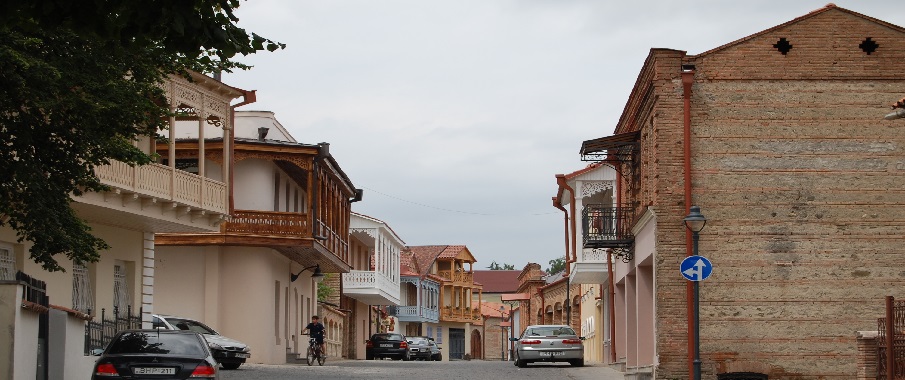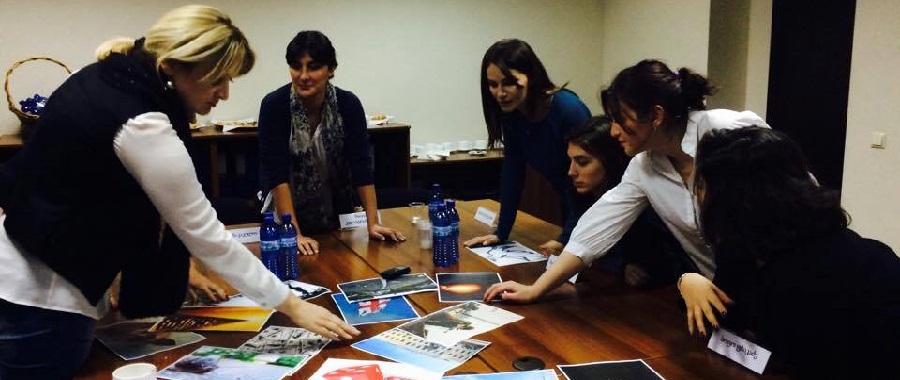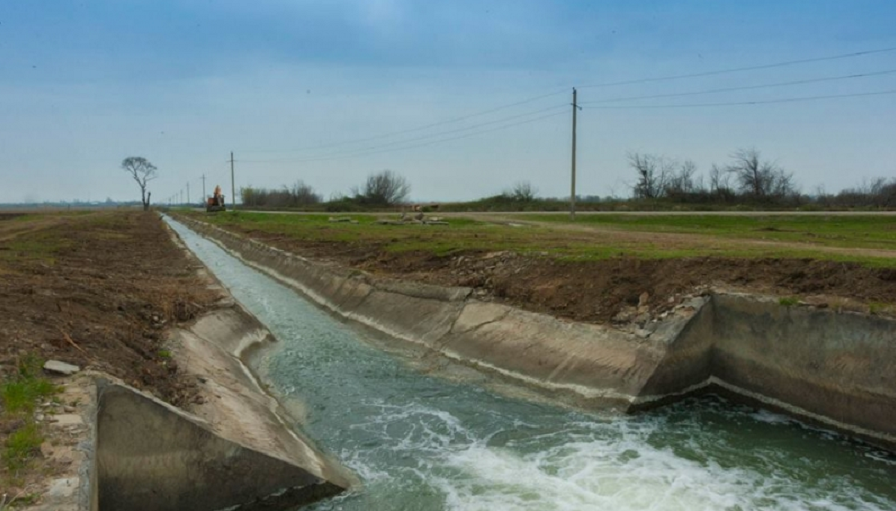Energy & Environment Projects


Assessment of the national water policy, as well as the needs and challenges associated with strengthening a long-term vision of the water policy framework of Georgia.
Read more
Development of Indirect Economic Multipliers for Georgian Economy, including multipliers for revenue generation, job creation and investments.
Read more
To Conduct Regulatory Impact Assessments and Gender Impact Assessments for Women’s Economic Empowerment in Georgia.
Read more
Build the capacity of the representatives of Parliament of Georgia and executive agencies to understand and apply the RIA methodology.
Read more
Consultants from ISET Policy Institute will assist the team from Research Education Development (RED) Fund working on spatial development plan of Telavi, in socio-economic analysis.
Read more
ISET Policy Institute aims to develop the policy alternatives to be used for implementation of economic instruments for water management based on principles of EU Water Framework Directive.
Read more
ISET-PI is working on a Regulatory Impact Assessment (RIA) on the Draft Law of Georgia on Biodiversity. This project will emphasize the consideration of Sustainable Development Goals in the RIA approach.
Read more
An ISET-PI team is participating in a project called Global Programme to Prevent Son Preference and Gender-Biased Sex Selection.
Read more
An ISET-PI team led by EEPRC’s Head Norberto Pignatti is conducting a Regulatory Impact Assessment (RIA) on Law of Water Resources Management.
Read more
Conducting Focus Group Interviews for Pension Reform Communication Strategy Development in Tbilisi and in regions to provide insights into how people think and understand new pension reform.
Read more
An ISET-PI team led by EEPRC’s Head Norberto Pignatti is conducting a Regulatory Impact Assessment (RIA) of the pension reform currently discussed in Georgia.
Read more
Agricultural Policy Research Center and Energy and Environment Policy Research Center are working on a Regulatory Impact Assessment (RIA) on draft Law on Irrigation/Drainage and methodology for irrigation/drainage tariff calculation in Georgia. Report will make recommendations on different policy options for developing an efficient system of Irrigation and Drainage services in the country.
Read more
BP in Georgia has implemented a number of projects related to renewable energy and energy efficiency through its Sustainable Development Initiative. The projects are designed to raise awareness about energy efficiency and provide subsidies for households to implement energy efficiency measures. In addition, several social programs related to increasing the efficiency of energy use and renewable energy have been implemented over the last four years.
Read more
The purpose of this event was to discuss the role of energy and water supply sectors for job creation and poverty reduction, as well as suggest improvements to existing policies affecting access to, and efficient use of, scarce resources.Georgia, just like other countries of South Caucasus region, is characterized with significant energy poverty. Electricity consumption per capita in the country is only 23% of OECD average. This is due to the low incomes in the country and the fact that people cannot afford using basic energy-intensive equipment, such as washing machines, refrigerators etc.
Read more
The objective of the project was to produce a pilot RIA on the draft Code on Spatial Planning and Construction in order for the regulators to make an informed decision.The project included a training phase to build the capacity of ISET Policy Institute (and two other Georgian organizations) to perform Regulatory Impact Assessment (RIA). The ISET-PI team performed a pilot RIA on the draft Spatial Planning and Construction code.
Read more
Partnering with the Association of Young Professionals in Energy of Georgia (AYPEG), ISET Policy Institute completed the project Assessment of the Research and Training needs For Georgian Energy Sector. This involved the interviews with the representatives of the companies operating in the energy sector of Georgia, both private and governmental (GNERC, ESCO, GSE etc.) and the large energy consumer companies (45 companies in total). The aim of the project was to assess the main research objectives and training needs in the Georgian energy sector as well as to identify the main issues ("hot topics") of the sectors.
Read more
Understanding the Puzzle of Informal Employment in Georgia.Implemented in partnership with the Institute for the Study of Labor (IZA), this research project seeks to analyze the links between informal and formal labor markets in Georgia, providing an opportunity to assess the impact of changes in labor legislation introduced as part of the effort to approximate Georgia's legal and regulatory environment to that of the EU.
Read more
Assessment of the national water policy, as well as the needs and challenges associated with strengthening a long-term vision of the water policy framework of Georgia.
Read more
Development of Indirect Economic Multipliers for Georgian Economy, including multipliers for revenue generation, job creation and investments.
Read more
To Conduct Regulatory Impact Assessments and Gender Impact Assessments for Women’s Economic Empowerment in Georgia.
Read more
Build the capacity of the representatives of Parliament of Georgia and executive agencies to understand and apply the RIA methodology.
Read more
Understanding the Puzzle of Informal Employment in Georgia.Implemented in partnership with the Institute for the Study of Labor (IZA), this research project seeks to analyze the links between informal and formal labor markets in Georgia, providing an opportunity to assess the impact of changes in labor legislation introduced as part of the effort to approximate Georgia's legal and regulatory environment to that of the EU.
Read more
Consultants from ISET Policy Institute will assist the team from Research Education Development (RED) Fund working on spatial development plan of Telavi, in socio-economic analysis.
Read more
ISET Policy Institute aims to develop the policy alternatives to be used for implementation of economic instruments for water management based on principles of EU Water Framework Directive.
Read more
ISET-PI is working on a Regulatory Impact Assessment (RIA) on the Draft Law of Georgia on Biodiversity. This project will emphasize the consideration of Sustainable Development Goals in the RIA approach.
Read more
An ISET-PI team is participating in a project called Global Programme to Prevent Son Preference and Gender-Biased Sex Selection.
Read more
An ISET-PI team led by EEPRC’s Head Norberto Pignatti is conducting a Regulatory Impact Assessment (RIA) on Law of Water Resources Management.
Read more
Conducting Focus Group Interviews for Pension Reform Communication Strategy Development in Tbilisi and in regions to provide insights into how people think and understand new pension reform.
Read more
An ISET-PI team led by EEPRC’s Head Norberto Pignatti is conducting a Regulatory Impact Assessment (RIA) of the pension reform currently discussed in Georgia.
Read more
Agricultural Policy Research Center and Energy and Environment Policy Research Center are working on a Regulatory Impact Assessment (RIA) on draft Law on Irrigation/Drainage and methodology for irrigation/drainage tariff calculation in Georgia. Report will make recommendations on different policy options for developing an efficient system of Irrigation and Drainage services in the country.
Read more
BP in Georgia has implemented a number of projects related to renewable energy and energy efficiency through its Sustainable Development Initiative. The projects are designed to raise awareness about energy efficiency and provide subsidies for households to implement energy efficiency measures. In addition, several social programs related to increasing the efficiency of energy use and renewable energy have been implemented over the last four years.
Read more
The purpose of this event was to discuss the role of energy and water supply sectors for job creation and poverty reduction, as well as suggest improvements to existing policies affecting access to, and efficient use of, scarce resources.Georgia, just like other countries of South Caucasus region, is characterized with significant energy poverty. Electricity consumption per capita in the country is only 23% of OECD average. This is due to the low incomes in the country and the fact that people cannot afford using basic energy-intensive equipment, such as washing machines, refrigerators etc.
Read more
The objective of the project was to produce a pilot RIA on the draft Code on Spatial Planning and Construction in order for the regulators to make an informed decision.The project included a training phase to build the capacity of ISET Policy Institute (and two other Georgian organizations) to perform Regulatory Impact Assessment (RIA). The ISET-PI team performed a pilot RIA on the draft Spatial Planning and Construction code.
Read more
Partnering with the Association of Young Professionals in Energy of Georgia (AYPEG), ISET Policy Institute completed the project Assessment of the Research and Training needs For Georgian Energy Sector. This involved the interviews with the representatives of the companies operating in the energy sector of Georgia, both private and governmental (GNERC, ESCO, GSE etc.) and the large energy consumer companies (45 companies in total). The aim of the project was to assess the main research objectives and training needs in the Georgian energy sector as well as to identify the main issues ("hot topics") of the sectors.
Read more









